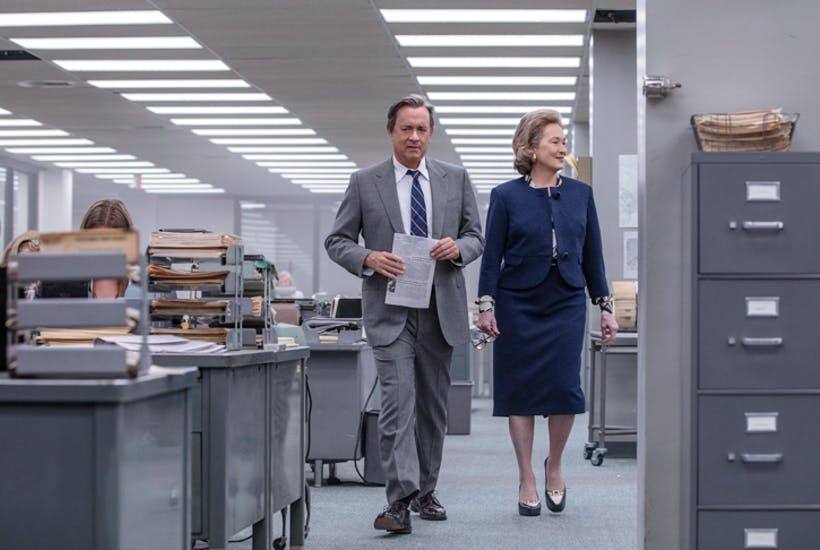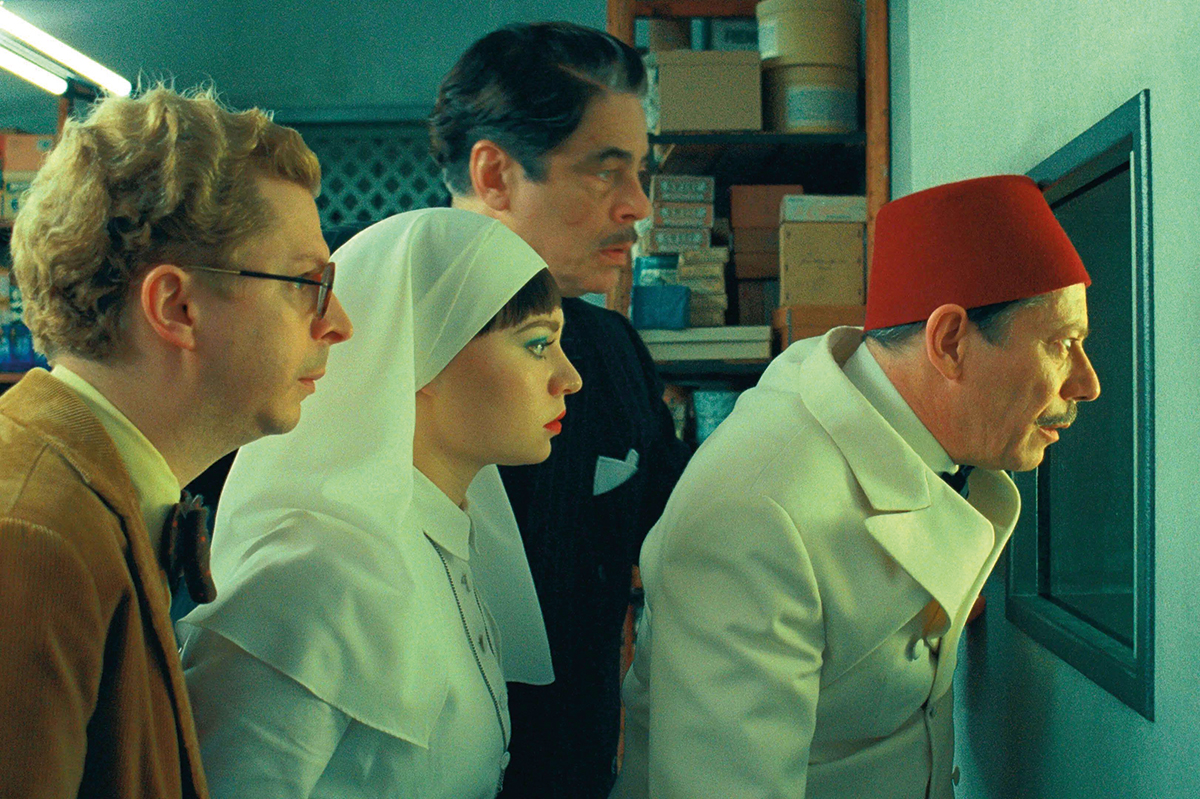Steven Spielberg’s The Post, which dramatizes the Washington Post’s publication of the Pentagon Papers in 1971, doesn’t exactly push at the frontiers of storytelling. It’s told straight and in a familiar way. Here are the journalists furtively working through top-secret government papers in a smoke-choked room for the public good. (There were no empty pizza boxes in this instance, but there could have been, if you get my drift.) Here’s the government trying to stop them. Here’s the newspaper rolling off the press, and everyone clapping. And so on. But it does star Tom Hanks and Meryl Streep, engaged in a kind of dance as the paper’s editor and proprietor, and you just can’t argue against Tom Hanks and Meryl Streep. You can try, but it’s likely you won’t get very far. Plus, it’s a bit of a Trojan horse, as it cleverly smuggles in another film; a film about a woman coming into her own, which has to be satisfying. And is.
At the outset, the Post is a local paper of not much significance, which doesn’t suit ambitious Ben Bradlee (Hanks), who is probably best described as ‘a newspaper man’. The biggest story on their books is the upcoming wedding of Nixon’s daughter but their style reporter, Judith, has been banned because she attended the wedding of his other daughter, and was catty in print. (We never meet Judith, alas, but I did like the sound of her.) Meanwhile, Katharine Graham (Streep), who had inherited the paper after the suicide of her husband, who in turn had inherited it from Graham’s father, has yet to find her feet. She drops papers, knocks over chairs, is easily flustered. She is surrounded by men who won’t take her seriously and cut her out of conversations. If death by mansplaining were an actual possibility, she’d have keeled over very early on.
However, life at the paper perks up when the New York Times obtains a government report showing that successive US administrations had known that Vietnam was an unwinnable war, but sent young men to their deaths anyhow. They publish on the same day the Post leads with the wedding of Nixon’s daughter, having obviously dispatched a different reporter — bring back Judith! — and Bradlee goes crazy because he didn’t get the story. But after a court order effectively closes down the Times, the Post secures its own copy of the report and has to decide whether or not it is too risky to publish.
We know what will happen. Even for those not well versed in the Pentagon Papers specifically, we know what will happen because what happens is what always happens in films of this type. So The Post is never especially dramatic or suspenseful, and it is sometimes overly perfunctory — for example, we can tell the papers are ‘top secret’ because they have ‘top secret’ written all over them — just as the script (by Liz Hannah and Josh Singer) is sometimes heavy-handed with its message about the freedom of the press, as timely as that is. But, on the whole, it’s solidly handled, the narrative is punctuated by real recordings of Nixon going apoplectic on the phone, which has to be fascinating (and is), and there are some terrific scenes, as when Graham has to betray a friend. There are some nice little touches too. Bradlee’s young daughter, for instance, makes a killing selling lemonade to the reporters holed up in that smoke-filled room which isn’t strewn with pizza boxes, but could have been. I don’t know why this tickled me, but it did.
True, Bradlee does feel rather generic, but Hanks brings warmth, particularly to the central relationship between him and Graham, which evolves as she evolves; as she journeys from a widowed socialite to a person of guts, capable of showing the men what’s what. (Especially satisfying.) And Streep is terrific. Her Graham is dithery but never an idiot, commanding even though she’s often invisible to those who surround her, and phenomenally relatable. This isn’t a film to go absolutely nuts about, but it’s sound, does the job, and you can’t argue against Streep and Hanks. You just can’t.

























